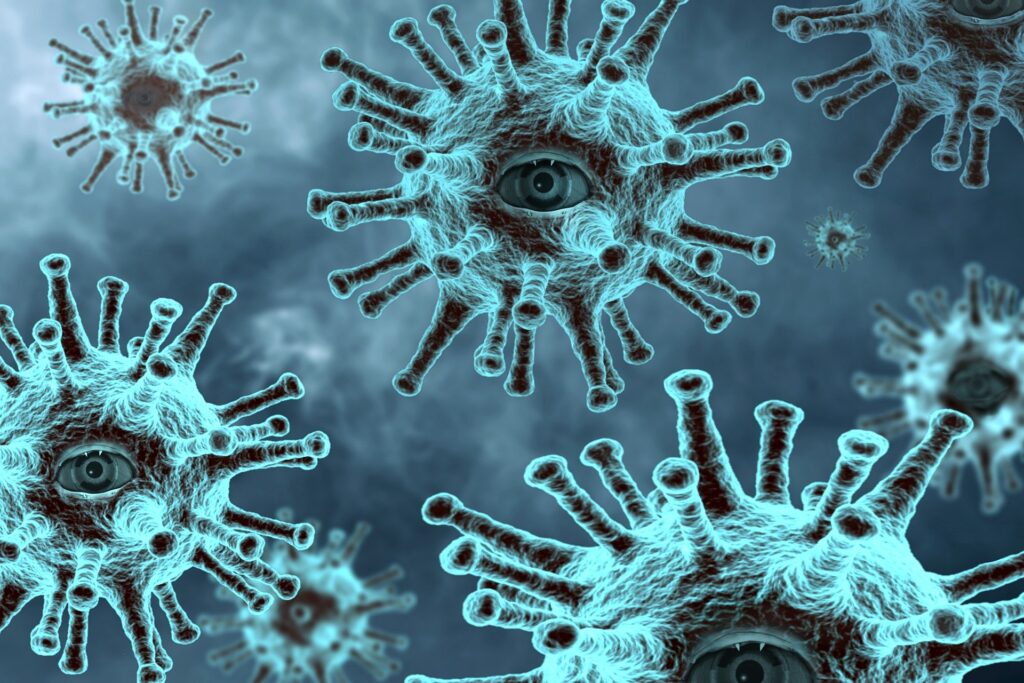
Gabapentin and Opiate Withdrawal—What You Need to Know Before You Detox
Learn does gabapentin help with opiate withdrawal symptoms, its benefits, risks, and usage tips before starting your detox journey.

June 2, 2017
Drug use increases risk for getting or passing on viral infections because certain viruses can spread through blood or body fluids. This happens primarily in two ways: (1) when people inject drugs and share needles or other drug equipment and (2) when drugs impair judgment and people make unwise, unprotected choices related to intimate contact with an infected partner. This can happen with men and women. Women who become infected with a virus can pass it to their baby during pregnancy, whether or not they use drugs. They can also pass HIV to the baby through breastmilk. Drug use can also affect the symptoms a person has from a viral infection.
The viral infections of greatest concern related to drug use are HIV and hepatitis.
HIV stands for human immunodeficiency virus. This virus infects the body’s immune cells, called CD4 cells (T cells), which are needed to fight infections. HIV lowers the number of these T cells in the immune system, making it harder and harder for the body to fight off infections and disease.
Acquired immune deficiency syndrome, or AIDS, is the final stage of an HIV infection when the body is unable to fend off disease. A health care provider diagnoses a patient with AIDS when that person has one or more infections and a T cell count of less than 200. Being infected with HIV doesn’t automatically mean that it will progress to AIDS.
More than 1.2 million people in the United States live with an HIV infection, with 156,300 who are unaware of their condition.1 While there are medicines that help prevent the spread of HIV and its progression to AIDS, there is no vaccine for the virus, and there is no cure. Drug use and addiction have been inseparably linked with HIV/AIDS since the beginning of the epidemic. The link has to do with heightened risk—both of contracting and transmitting HIV and of worsening its consequences.
Hepatitis is an inflammation (painful swelling and irritation) of the liver, most often caused by a family of viruses: A, B, C, D, and E. Each has its own way of spreading to other people and its own treatment. Hepatitis B (HBV) and hepatitis C (HCV) can spread through sharing needles and other drug equipment. Infections can also be transmitted through risky sexual behaviors linked to drug use, though this is not common with HCV.
Hepatitis can lead to cirrhosis—scarring of the liver—resulting in loss of liver function. It can also lead to liver cancer. In fact, HBV and HCV infections are the major risk factors for liver cancer in the United States.2
There is a vaccine to prevent HBV infection and medicines to treat it. There are also medicines to treat HCV infection, but no vaccine for prevention. Some people recover from infection without treatment. One medicine for HCV infection has been found to cure some people. Other people need to take medicine for the rest of their lives and be monitored for liver failure and cancer.
How does drug use affect symptoms and outcomes of a viral infection?
Drug use can worsen HIV symptoms, including causing greater nerve cell injury and problems with thinking, learning, and memory. Drug and alcohol use can also directly damage the liver, increasing risk for chronic liver disease and cancer among those infected with HBV or HCV.
People can reduce the risk of getting or passing on a viral infection by:
Read more about HIV testing at the AIDS.gov – HIV Test Types. Read more about hepatitis testing in the Centers for Disease Control and Prevention’s (CDC’s) fact sheet, Hepatitis C: Information on Testing and Diagnosis.
The viral infections of greatest concern related to drug use are HIV and hepatitis. People can reduce their risk of getting or passing on a viral infection by not using drugs, getting treatment for drug use, and getting tested for HIV and HCV.
If you or someone you know is struggling with drug abuse and in need of addiction treatment in Fort Lauderdale, give Summer House Detox Center a call at 800-719-1090 to schedule a FREE consultation. You can also visit us at 13550 Memorial Highway Miami, FL 33161. We are open 24 hours a day, 7 days a week.
Source: NIDA (National Institute On Drug Abuse)

Learn does gabapentin help with opiate withdrawal symptoms, its benefits, risks, and usage tips before starting your detox journey.

Discover how to choose the best methadone detox facility for safe, comfortable withdrawal and lasting recovery. Start your journey today!

Discover the best miami florida rehabilitation center options—compare services, programs, and tips for choosing your ideal path to recovery.
For immediate assistance, please call our Admissions Specialists at 800-719-1090.
Speak With A Qualified Addiction Specialist 24/7